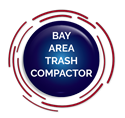What is Waste Diversion?
Waste diversion is the process of diverting waste from landfills through recycling, composting, and other methods. This is done to reduce the amount of waste that ends up in landfills, which can have a number of environmental benefits. For example, diverting waste to recycling can save energy and water, and reduce greenhouse gas emissions. Composting waste can also help to improve soil quality.
Why is waste diversion important?
Waste diversion is important because it can help to reduce the environmental impact of waste. Landfills are a major source of pollution, and they can also leak harmful chemicals into the environment. By diverting waste from landfills, we can help to reduce these risks.
In addition, waste diversion can also have economic benefits. Recycling and composting can create jobs, and they can also save businesses money on waste disposal costs
What are the different methods of waste diversion?
There are a number of different methods of waste diversion, including:
- Recycling: Recycling is the process of turning waste materials into new products. This can be done with a variety of materials, including paper, plastic, glass, and metal.
- Composting: Composting is the process of breaking down organic waste materials, such as food scraps and yard waste, into humus. Humus is a nutrient-rich material that can be used to improve soil quality.
- Reuse: Reuse is the act of using a product or material again for the same or a different purpose. For example, you can reuse old jars for storing food or drinks, or you can reuse old clothes by donating them to charity.
- Source reduction: Source reduction is the process of reducing the amount of waste that is generated in the first place. This can be done by using less packaging, buying less disposable products, and repairing and reusing items instead of throwing them away.
How can I get involved in waste diversion?
There are a number of things you can do to get involved in waste diversion:
- Recycle: Make sure you are recycling all of the materials that are recyclable in your community. You can find out what is recyclable by contacting your local waste disposal company.
- Compost: Start a compost bin at home. Composting is a great way to reduce your food scraps and yard waste.
- Reuse: Find ways to reuse items instead of throwing them away. There are many ways to get creative with reuse, so start looking for ideas.
- Buy less: Try to buy less stuff in general. This will help to reduce the amount of waste you generate in the first place.
- Support businesses that are committed to sustainability: Look for businesses that are using recycled materials, composting their waste, and otherwise working to reduce their environmental impact.
By taking these simple steps, you can help to make a difference in the fight against waste.
